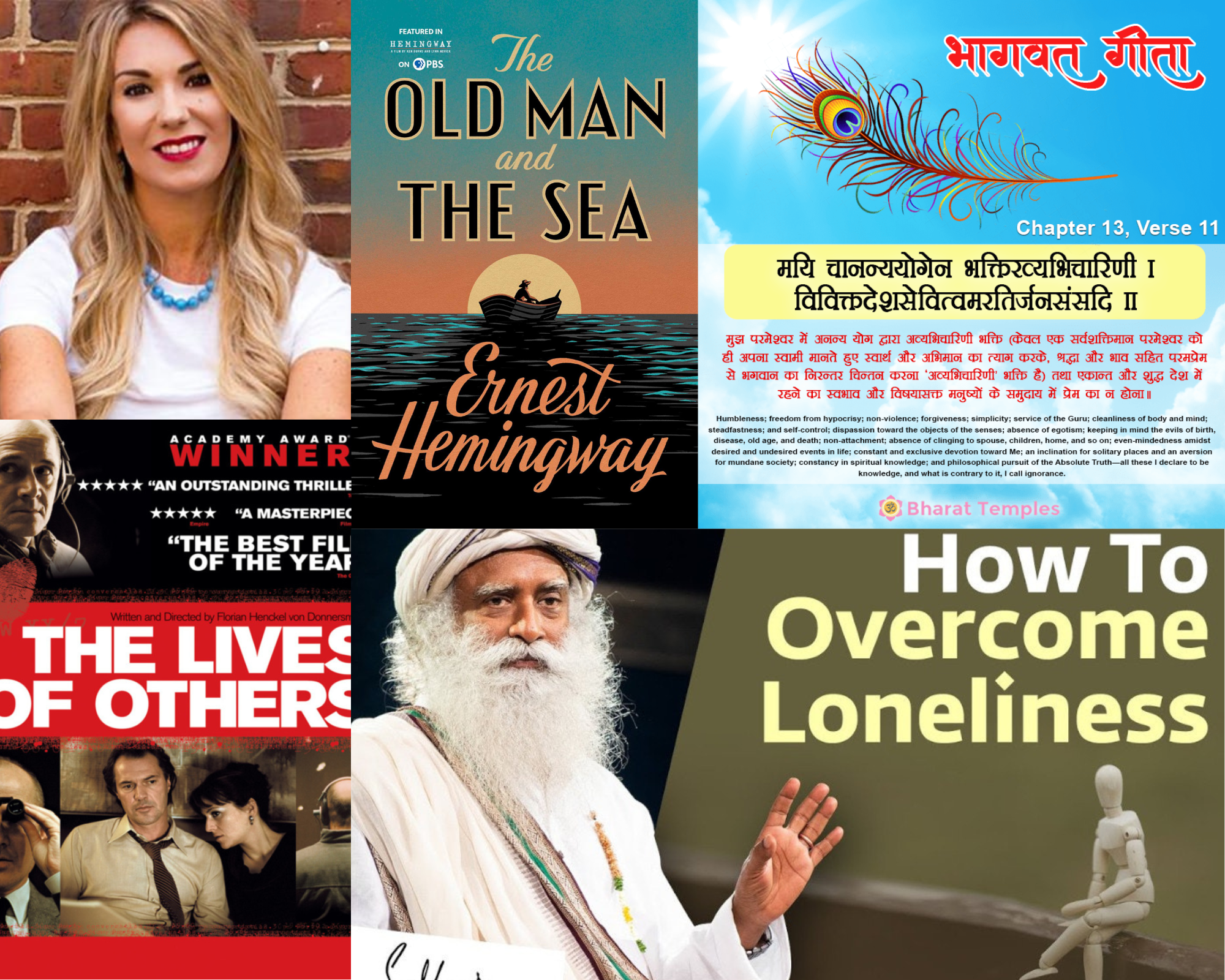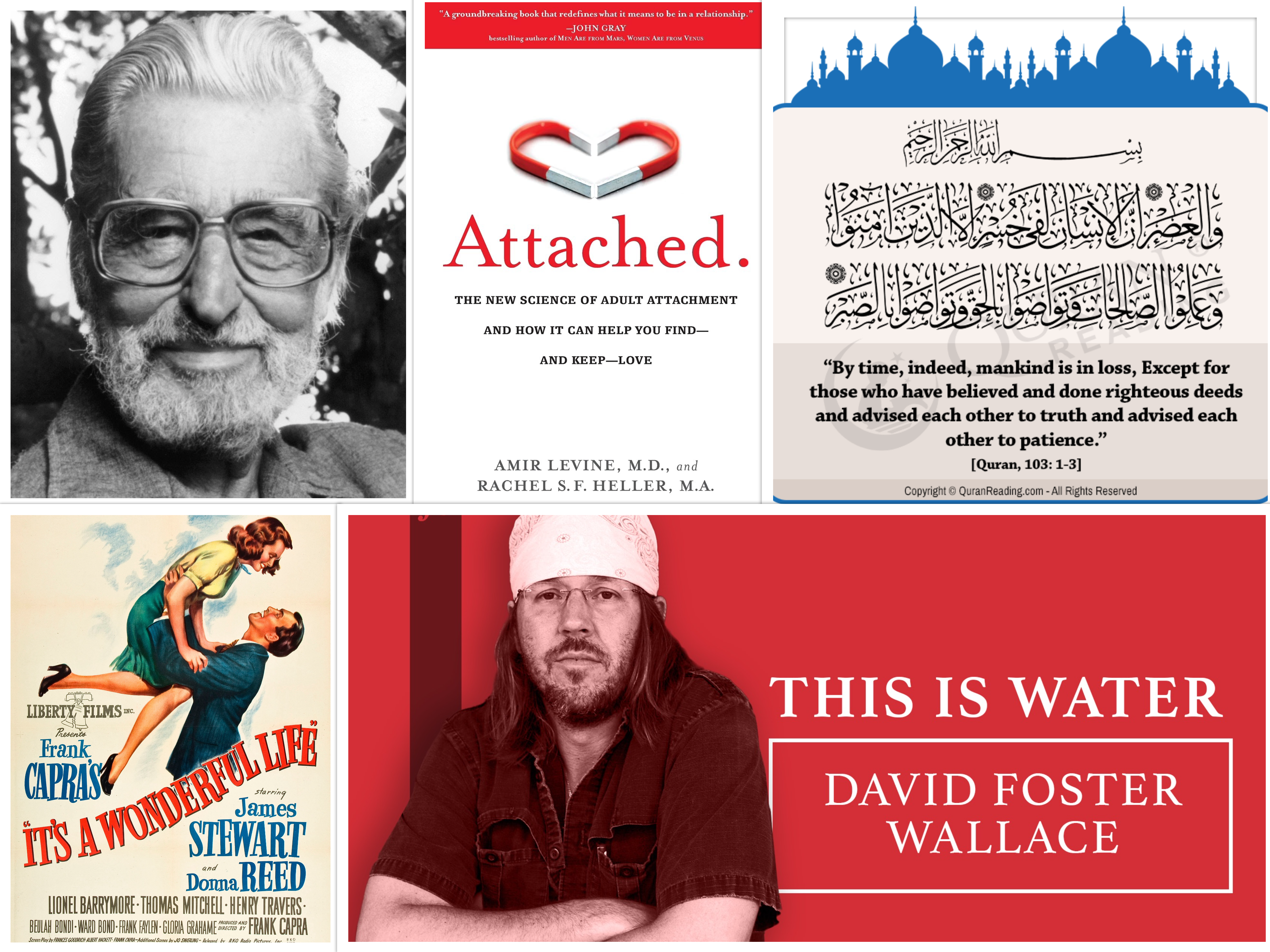Sunday Supplement #74 (October 9th, 2022)
Below is another Sunday Supplement with a quote worth sharing, a book worth reading, a movie worth watching, brainfood worth consuming, and a spiritual passage worth pondering.
I hope you take something away from these recommendations that enriches your week ahead!
Quote of the Week:
“A season of loneliness and isolation is when the caterpillar gets its wings. Remember that next time you feel alone.”
– Mandy Hale
Book of the Week:
The Old Man and the Sea – Ernest Hemingway
The Old Man and the Sea tells the story of Santiago, an old experienced fisherman who’s gone almost three months without catching a fish.
Santiago is considered unlucky by the community. His pupil Manolin is forced to work with another boat by his parents even though he remains friends with Santiago.
The old man decides he will venture far out to sea and catch fish, confident his unlucky streak will come to pass.
Earnest Hemingway’s last major work of fiction published during his life won him a Pulitzer Prize for Fiction.
I read the novella a few years ago in one sitting. I thoroughly enjoyed the book and loved the story and prose. Give it a chance and see what it brings up for you.
Movie of the Week:
In 1984 East Berlin, a secret police agent is ordered to spy on a prominent playwright, who has previously escaped state scrutiny due to his international recognition.
The agent, Gerd Wiesler, and his team bug and set up surveillance equipment in the playwright Georg Dreyman’s apartment.
Wiesler becomes increasingly absorbed by the playwright’s life with the complexities between the theatrical community and the state due to conflicting motivations.
The Lives of Others won the Oscar for Best Foreign Language Film of the Year at the 2007 Academy Awards.
The film made $77 million from a $2 million budget and currently places at 58 on IMDb’s Top 250 list. I highly recommend checking it out.
Brainfood of the Week:
How to Overcome Loneliness | Sadhguru
A student asks Sadhguru how to deal with loneliness and feelings of not belonging, not being accepted, and not being loved.
Sadhguru answers the question with many insights on attachment, freedom, and the struggles of living a non-fixed life.
He explains that the number of chemicals running through us varies and makes up a sort of chemical soup of being. How can we make this function at its highest level?
Once your way of being is not determined by anything outside you, there is no such thing as loneliness.
There are many amazing points in this video. If you enjoy the content, check out the other Sunday Supplements where I featured Sadhguru.
Closing Spiritual Passage:
“…an inclination for solitary places and an aversion for mundane society; constancy in spiritual knowledge…— all these I declare to be knowledge.”
– Bhagavad Gita 13:11
When I come across passages like 13:11 in the Bhagavad Gita, I try to find the lesson or the wisdom each word imparts.
Other sections of this passage describe humbleness, nonviolence, self-control, and more under the umbrella of declared knowledge.
The messages in these seemed apparent, but the inclination for solitary places and an aversion for mundane society caused me to think a little harder.
Many gurus remain in solitude in the Hindu texts I come across. However, solitude is often a punishment in many other cultures.
That being said, I think the idea of an inclination for solitary places is wanting moments where you can seek peace and refine yourself.
When I fill my schedule with too many things (productive or not), they can be a distraction and a way to avoid reflecting and recharging.
Make time for a quiet space to reflect or meditate, and have a blessed week ahead!
Comments closed
